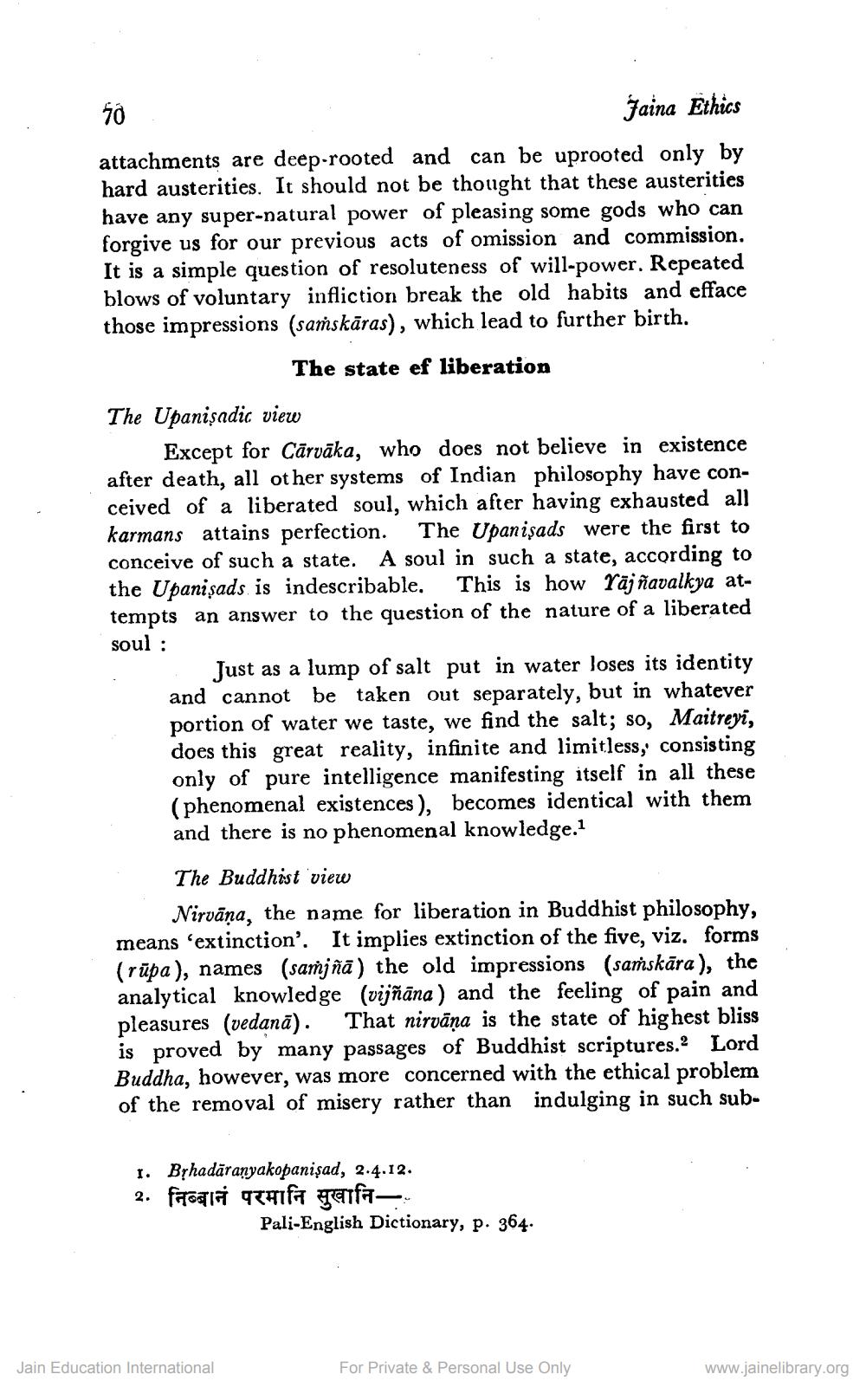________________
Jaina Ethics attachments are deep-rooted and can be uprooted only by hard austerities. It should not be thought that these austerities have any super-natural power of pleasing some gods who can forgive us for our previous acts of omission and commission. It is a simple question of resoluteness of will-power. Repeated blows of voluntary infliction break the old habits and efface those impressions (saṁskāras), which lead to further birth.
The state ef liberation The Upanişadic view
Except for Cārvāka, who does not believe in existence after death, all other systems of Indian philosophy have conceived of a liberated soul, which after having exhausted all karmans attains perfection. The Upanişads were the first to conceive of such a state. A soul in such a state, according to the Upanişads. is indescribable. This is how rajñavalkya attempts an answer to the question of the nature of a liberated soul :
Just as a lump of salt put in water loses its identity and cannot be taken out separately, but in whatever portion of water we taste, we find the salt; so, Maitreyi, does this great reality, infinite and limitless, consisting only of pure intelligence manifesting itself in all these (phenomenal existences), becomes identical with them and there is no phenomenal knowledge.1
The Buddhist view
Nirvāṇa, the name for liberation in Buddhist philosophy, means 'extinction'. It implies extinction of the five, viz. forms (rupa), names (sasjñā) the old impressions (saṁskāra), the analytical knowledge (vijñāna) and the feeling of pain and pleasures (vedanā). That nirvāṇa is the state of highest bliss is proved by many passages of Buddhist scriptures.2 Lord Buddha, however, was more concerned with the ethical problem of the removal of misery rather than indulging in such sub
1. Bịhadāranyakopanişad, 2.4.12. 2. fali qift Taft
Pali-English Dictionary, p. 364.
Jain Education International
For Private & Personal Use Only
www.jainelibrary.org




